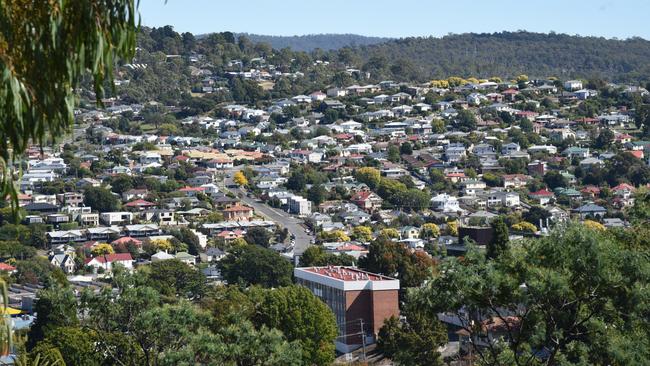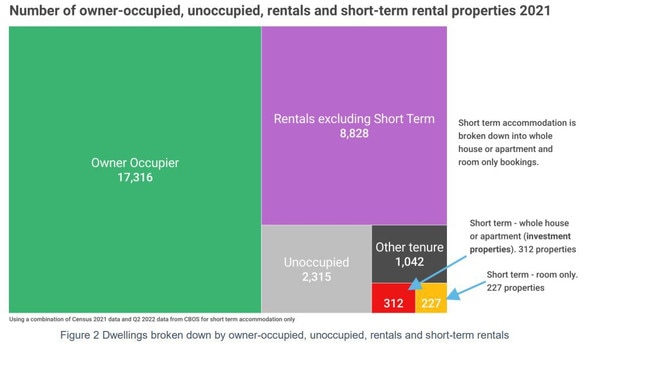Launceston houses: Airbnb not causing lack of rentals, council CEO says
A Tasmanian council’s chief executive says the conversion of long-term rentals into short-stay accommodation is not the key cause of the lack of available and affordable rentals in his part of the state >

Launceston
Don't miss out on the headlines from Launceston. Followed categories will be added to My News.
A Tasmanian council’s chief executive says the conversion of long-term rentals into short-stay accommodation is not the cause of the lack of available and affordable rentals in Launceston.
City of Launceston chief executive Michael Stretton was tasked by council on August 25 last year to review the growth in Launceston’s short-stay market and make recommendations.
His report was delivered on Thursday.

Its five recommendations, including that the council investigate differential rates for short-stay properties and lobby the Local Government Association of Tasmania to investigate and report on the implementation of a vacant residential land tax for unoccupied homes, were adopted.
The report said vacant dwellings, rather than houses being taken off the rental market and advertised on platforms such as Airbnb, had a greater impact on rental avilability
However, by far the greatest factor in Launceston, which has a rental vacancy rate of 0.9 per cent according to the Real Estate Institute of Tasmania’s most recent quarterly report, was housing supply, with the need to continue bringing new dwellings online clearly identified.
Mr Stretton’s report said there were 516 properties in Launceston listed as short-stay accommodation. Of those, 294 are for whole houses or apartments, representing less than one per cent of Launceston’s 31,274 private dwellings.

With the ratio of rental properties to owner-occupiers mostly constant over the five years between the most recent censuses, the report concluded that the “residential rental market has grown fast enough to offset any that are converting to short-stay accommodation”.
“As formalised whole-house or apartment short-stay accommodations accounts for less than 1 per cent of all dwellings and around 3.1 per cent of all rented dwellings, it is not considered that short stay accommodation is a major driver of the housing stress which is being experienced within the City of Launceston.”
Mr Stretton’s report said that boosting housing supply, rather than penalising short-stay operators, was the solution to what REIT called a “dire shortage” of available rentals.
“It is clear... that much of the issue is being caused by demand that is currently outstripping supply,” the report said.
According to the report, five proposed mega subdivisions in various stages of planning, as well as other infill and inner-city living developments, were expected to deliver approximately 7500 new dwellings over the next 20 years.
These included South Prospect (2000 lots), St Leonards Growth Corridor (3500 lots), Alanvale (450 lots), The Green between Rocherlea and Mowbray (600 lots), and Techno Park/Wildor Crescent (214 lots).
Another factor identified was Launceston’s “high number” of unoccupied dwellings, 2315, on the night of the 2021 Census.
The report pointed out Victoria’s strategy of taxing one per cent of the capital investment value of those long-term vacant properties per annum.





